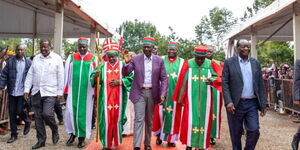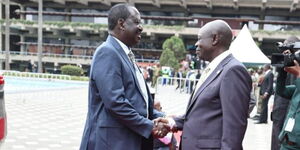Kenya Railways and the World Bank have entered into a partnership aimed at electrifying commuter trains across the country.
The project aims to replace traditional diesel-powered engines with Battery Electric Multiple Units (BEMU) on the Nairobi rail commuter network and the Thika rail system.
Kenya Railways has outlined that the initial phase of the programme will focus on electrifying the Thika-Nanyuki railway, which represents the longest commuter phase.
Upon successful implementation, the project will subsequently be extended to other commuter railways within Nairobi city.
Kenya Railways has confirmed that, in collaboration with the World Bank, the first phase of its electrification programme is scheduled for completion by August 2024.
Upon achievement, Kenya will lead Africa as the first country to adopt electric battery technology, marking a significant milestone for Kenya Railways.
Furthermore, it was disclosed that Kenya Railways held a meeting on May 27, 2024, in Nairobi with the Systra Group, tasked with implementing the project. Systra Group presented a feasibility assessment for the electric battery option in commuter rail trains.
During discussions, Systra addressed several aspects, including battery charging requirements and the theoretical capacity of the existing line between Nairobi's commuter rail and Thika.
Managing Director Phillip Mainga emphasised the importance of timely project implementation during the meeting. World Bank representatives affirmed their commitment to supporting Kenya Railways in enhancing the scalability and financial viability of electric mobility solutions. These initiatives aim to meet growing passenger transport needs while reducing greenhouse gas emissions in the sector.
These developments follow Kenya Railways' launch of its 2023-2027 strategic plan, which includes plans to procure additional coaches and introduce premium services for high-end clients on the SGR routes.












